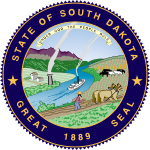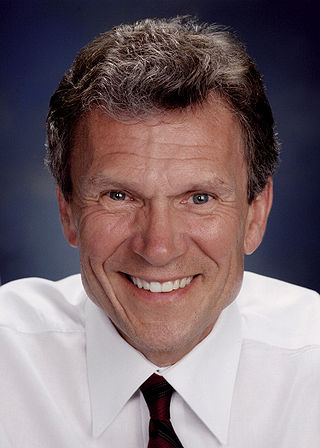
Thomas Andrew Daschle is an American politician and lobbyist who represented South Dakota in the United States Senate from 1987 to 2005. A member of the Democratic Party, he led the Senate Democratic Caucus during the final ten years of his tenure, during which time he served as Senate Minority Leader and Majority Leader.

The 2004 United States Senate elections were held on November 2, 2004, with all Class 3 Senate seats being contested. They coincided with the re-election of George W. Bush as president and the United States House elections, as well as many state and local elections. Senators who were elected in 1998, known as Senate Class 3, were seeking re-election or retiring in 2004.
Reagan's coattails refers to the influence of Ronald Reagan's popularity in elections other than his own, after the American political expression to "ride in on another's coattails". Chiefly, it refers to the "Reagan Revolution" accompanying his 1980 election to the U.S. presidency. This victory was accompanied by the change of twelve seats in the United States Senate from Democratic to Republican hands, producing a Republican majority in the Senate for the first time since 1954.
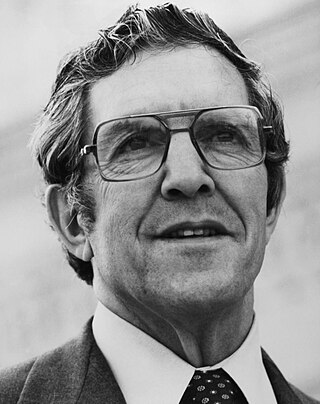
Ellis James Abdnor was an American politician who served as a member of the United States Senate from South Dakota. He was also the 15th Administrator of the Small Business Administration under presidents Ronald Reagan and George H. W. Bush.

John Randolph Thune is an American politician serving as the senior United States senator from South Dakota, a seat he has held since 2005. Thune is in his fourth Senate term and is the Senate minority whip, a post he has held since 2021. A member of the Republican Party, Thune served three terms as the U.S. representative for South Dakota's at-large congressional district from 1997 to 2003.

The 1998 United States Senate elections were held on November 3, with the 34 seats of Class 3 contested in regular elections. This was seen as an even contest between the Republican Party and Democratic Party. While the Democrats had to defend more seats up for election, Republican attacks on the morality of President Bill Clinton failed to connect with voters and anticipated Republican gains did not materialize. The Republicans picked up open seats in Ohio and Kentucky and narrowly defeated Democratic incumbent Carol Moseley Braun, but these were cancelled out by the Democrats' gain of an open seat in Indiana and defeats of Republican Senators Al D'Amato and Lauch Faircloth. The balance of the Senate remained unchanged at 55–45 in favor of the Republicans.

The 1986 United States Senate elections were elections for the United States Senate. Held on November 4, in the middle of Ronald Reagan's second presidential term, the 34 seats of Class 3 were contested in regular elections. The Republicans had to defend an unusually large number of freshman Senate incumbents who had been elected on President Ronald Reagan's coattails in 1980. Democrats won a net of eight seats, defeating seven freshman incumbents, picking up two Republican-held open seats, and regaining control of the Senate for the first time since January 1981. This remains the most recent midterm election cycle in which the sitting president's party suffered net losses while still flipping a Senate seat.

The 1980 United States Senate elections were held on November 4, coinciding with Ronald Reagan's victory in the presidential election. The 34 Senate seats of Class 3 were contested in regular elections. Reagan's large margin of victory over incumbent Jimmy Carter gave a huge boost to Republican Senate candidates, allowing them to flip 12 Democratic seats and win control of the chamber for the first time since the end of the 83rd Congress in January 1955.

The 1974 United States Senate elections were held on November 5, with the 34 seats of Class 3 contested in regular elections. They occurred in the wake of the Watergate scandal, Richard M. Nixon's resignation from the presidency, and Gerald Ford's subsequent pardon of Nixon. Economic issues, specifically inflation and stagnation, were also a factor that contributed to Republican losses. As an immediate result of the November 1974 elections, Democrats made a net gain of three seats from the Republicans, as they defeated Republican incumbents in Colorado and Kentucky and picked up open seats in Florida and Vermont, while Republicans won the open seat in Nevada. Following the elections, at the beginning of the 94th U.S. Congress, the Democratic caucus controlled 60 seats, and the Republican caucus controlled 38 seats.

The 1968 United States Senate elections were elections for the United States Senate. Held on November 5, the 34 seats of Class 3 were contested in regular elections. They coincided with the presidential election of the same year. The Republicans picked up five net seats in the Senate. This saw Republicans win a Senate seat in Florida for the first time since Reconstruction.

The structure of the government of South Dakota is based on that of the federal government, with three branches of government: executive, legislative, and judicial. The structure of the state government is laid out in the Constitution of South Dakota, the highest law in the state. The constitution may be amended either by a majority vote of both houses of the legislature, or by voter initiative.

The 2004 United States Senate election in South Dakota was held on November 2, 2004. Incumbent Democratic U.S. Senator and Senate Minority Leader Tom Daschle ran for re-election to a fourth term, but was narrowly defeated by Republican John Thune.
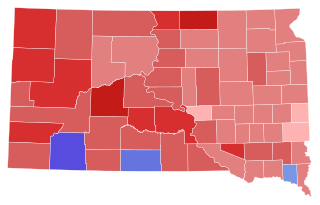
The 1980 United States Senate election in South Dakota was held on November 4, 1980. Incumbent Democratic U.S. Senator George McGovern ran for re-election to a fourth term, but was defeated by Republican James Abdnor.

George McGovern, a Democratic Party politician from South Dakota, was first elected to the United States House of Representatives to represent South Dakota's 1st congressional district in 1956. He was re-elected in 1958, before making an unsuccessful run for the United States Senate in 1960 against Republican incumbent Karl Earl Mundt. After serving in the John F. Kennedy administration as director of the Food for Peace program, McGovern ran again for the Senate and narrowly prevailed over appointed Senator Joseph H. Bottum. In 1968, McGovern unsuccessfully sought the Democratic Party's presidential nomination at the Democratic National Convention and was re-elected to the Senate over former Governor of South Dakota Archie M. Gubbrud. In 1972, McGovern was successful in his campaign for the Democratic presidential nomination, but lost the election in a landslide to incumbent President Richard Nixon. McGovern was re-elected to the Senate in 1974 over Vietnam War veteran Leo K. Thorsness, but lost re-election in 1980 to then-U.S. Representative James Abdnor. McGovern made a final unsuccessful run for president in 1984 United States presidential election.

The 1998 United States Senate election in South Dakota was held November 2, 1998. Incumbent Democratic U.S. Senator Tom Daschle won re-election to a third term. As of 2024, this was the last time a Democrat won the Class 3 Senate seat from South Dakota.

The 1992 United States Senate election in South Dakota was held on November 2, 1992. Incumbent Democratic U.S. Senator Tom Daschle won re-election to a second term.
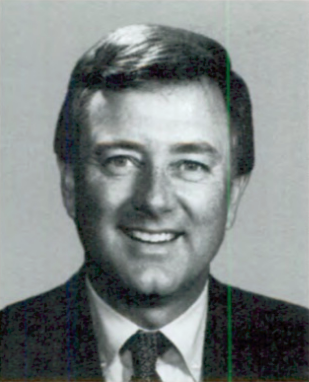
The 2014 United States Senate election in South Dakota took place on November 4, 2014, to elect a member of the United States Senate to represent the state of South Dakota, concurrently with the election of the Governor of South Dakota, as well as other elections to the United States Senate in other states and elections to the United States House of Representatives and various state and local elections.
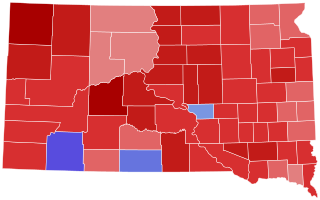
The 2016 United States Senate election in South Dakota was held November 8, 2016, to elect a member of the United States Senate to represent the State of South Dakota, concurrently with the 2016 U.S. presidential election, as well as other elections to the United States Senate in other states and elections to the United States House of Representatives and various state and local elections. The primaries were held June 7.
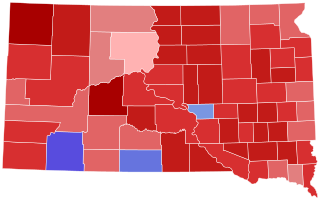
The 2022 United States Senate election in South Dakota was held on November 8, 2022, to elect a member of the United States Senate to represent the State of South Dakota. Incumbent three-term Republican U.S. Senator John Thune, who is the Senate Minority Whip, was first elected in 2004, defeating Democratic incumbent Tom Daschle, the then-Senate Minority Leader. He ran for reelection to a fourth term. The Democratic nominee was 26-year Navy, Air Force JAG Corps Veteran, and former college professor Brian Bengs. Thune was ultimately reelected.

The 1972 United States Senate election in South Dakota took place on November 7, 1972, concurrently with the U.S. presidential election as well as other elections to the United States Senate in other states as well as elections to the United States House of Representatives and various state and local elections.

